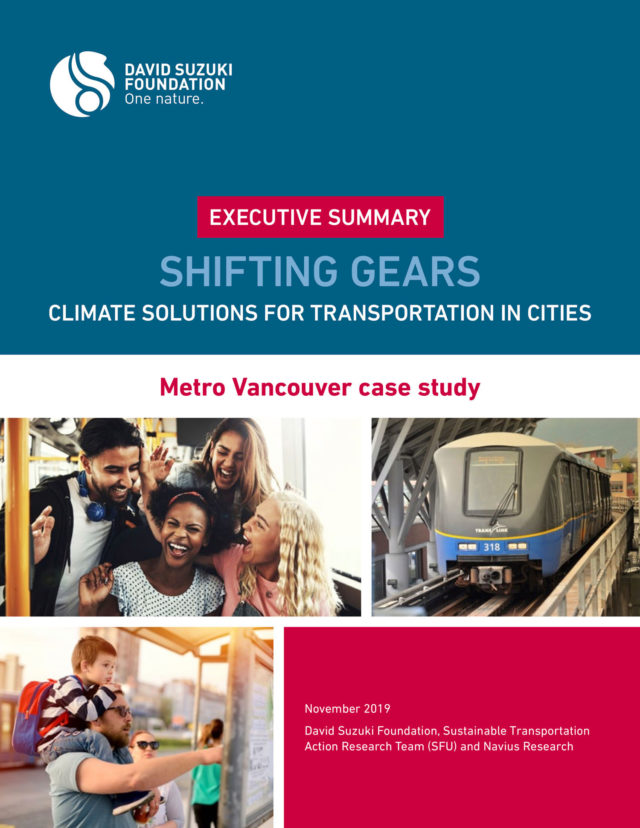EXECUTIVE SUMMARY — Shifting Gears: Climate Solutions for Transportation in Cities, Metro Vancouver Case Study
Published by:
David Suzuki Foundation
Authored by:
Jonn Axsen,
Michael Wolinetz
Climate solutions, Cities British Columbia, sustainable transportation, greenhouse gas emissions, climate change, fossil fuels
Metro Vancouver, British Columbia and Canada are at a pivotal moment to act on the climate crisis. Hundreds of thousands of people have been marching in the streets. More than 400 communities throughout the country have declared climate emergencies. With transportation accounting for 45 per cent of Metro Vancouver’s total emissions, low-carbon transportation solutions are a vital part of meeting the public demand for effective climate policies.
This is the executive summary of a report that presents evidence-based transportation solutions that could have a powerful effect in reaching Canada’s Paris Agreement commitments and a proposed national target of net-zero carbon emissions by 2050. The report finds that a low-carbon fuel standard, zero-emissions vehicle mandate and vehicle efficiency/emissions standards come out on top as priority mitigation policies.
Policy-makers need to consider priority measures as part of a broader, comprehensive policy mix that includes land-use planning and improvements to the built environment, active transportation and public transit.
